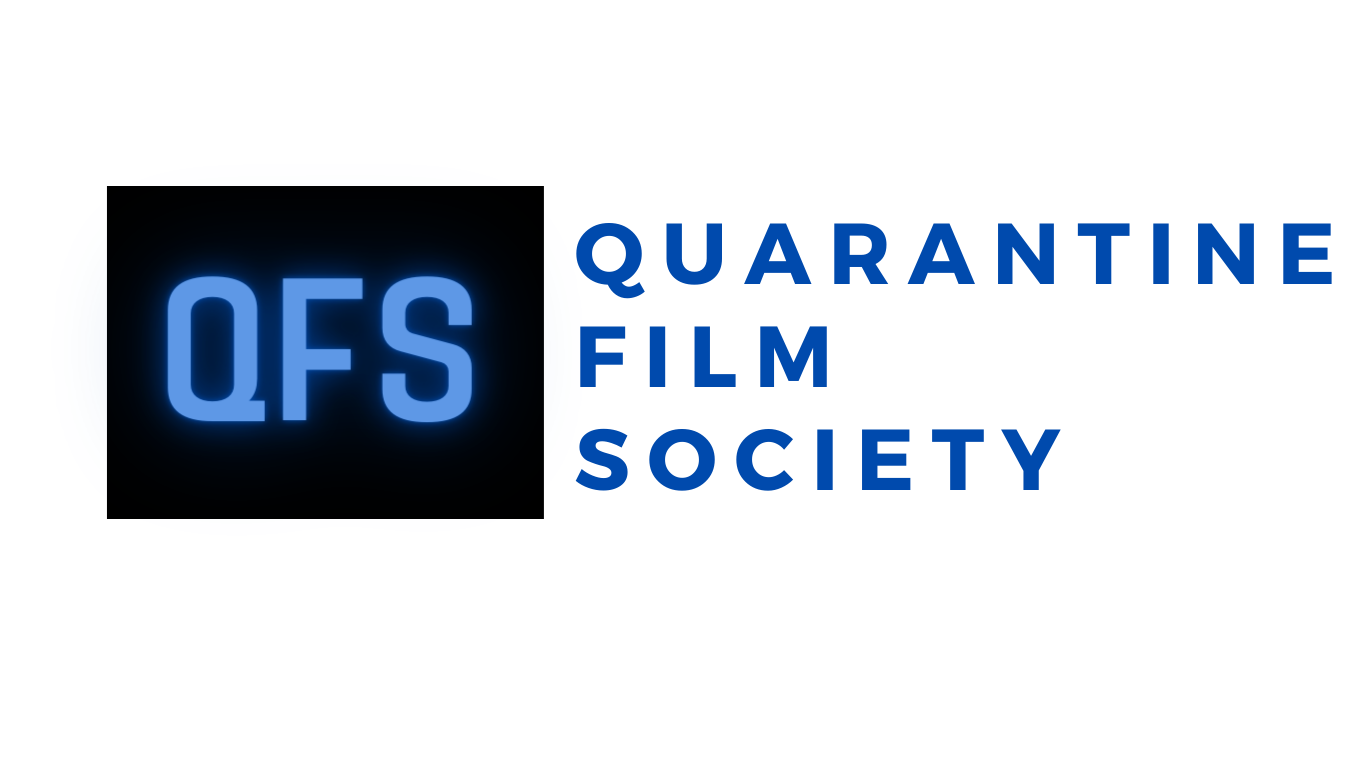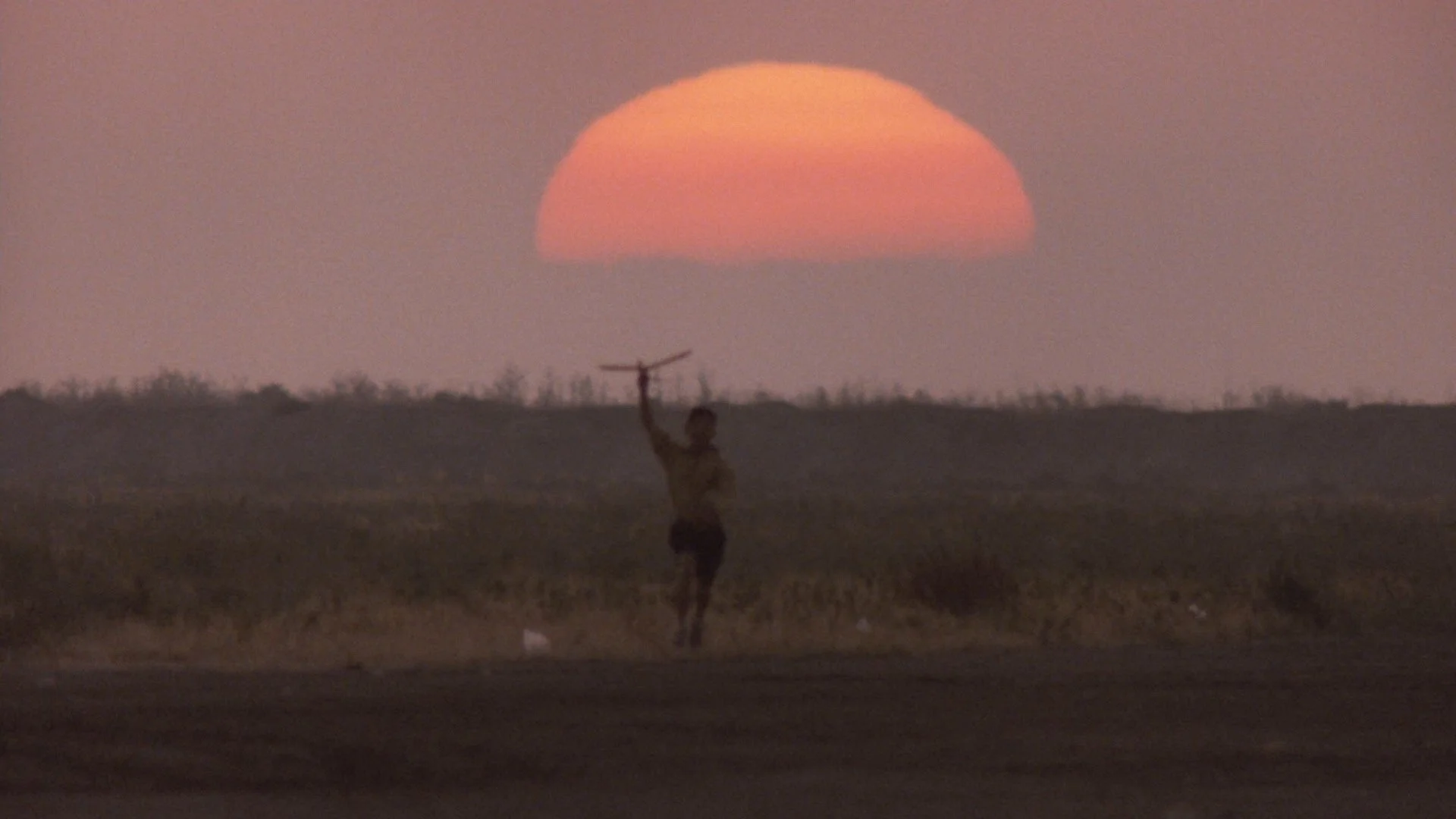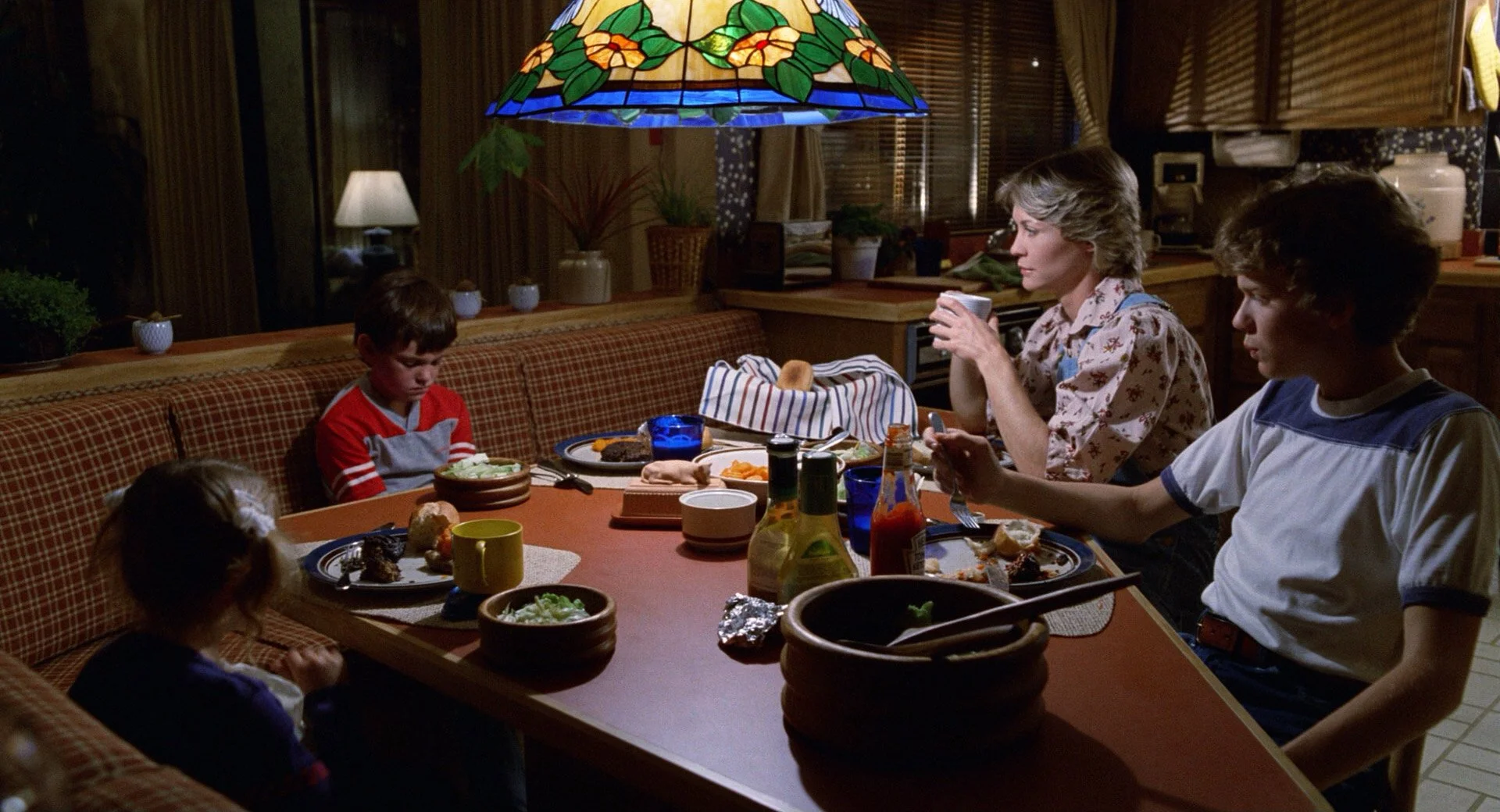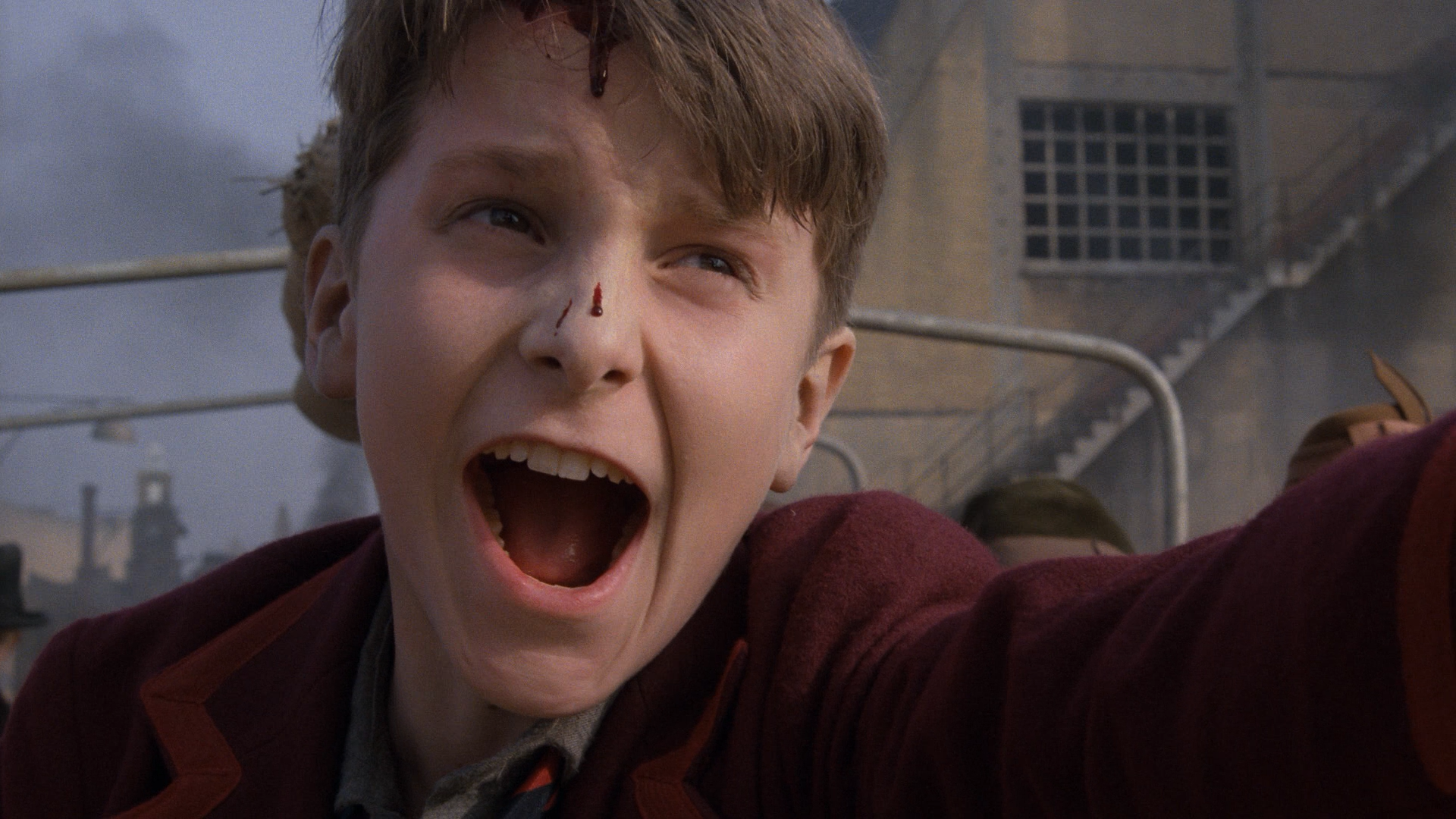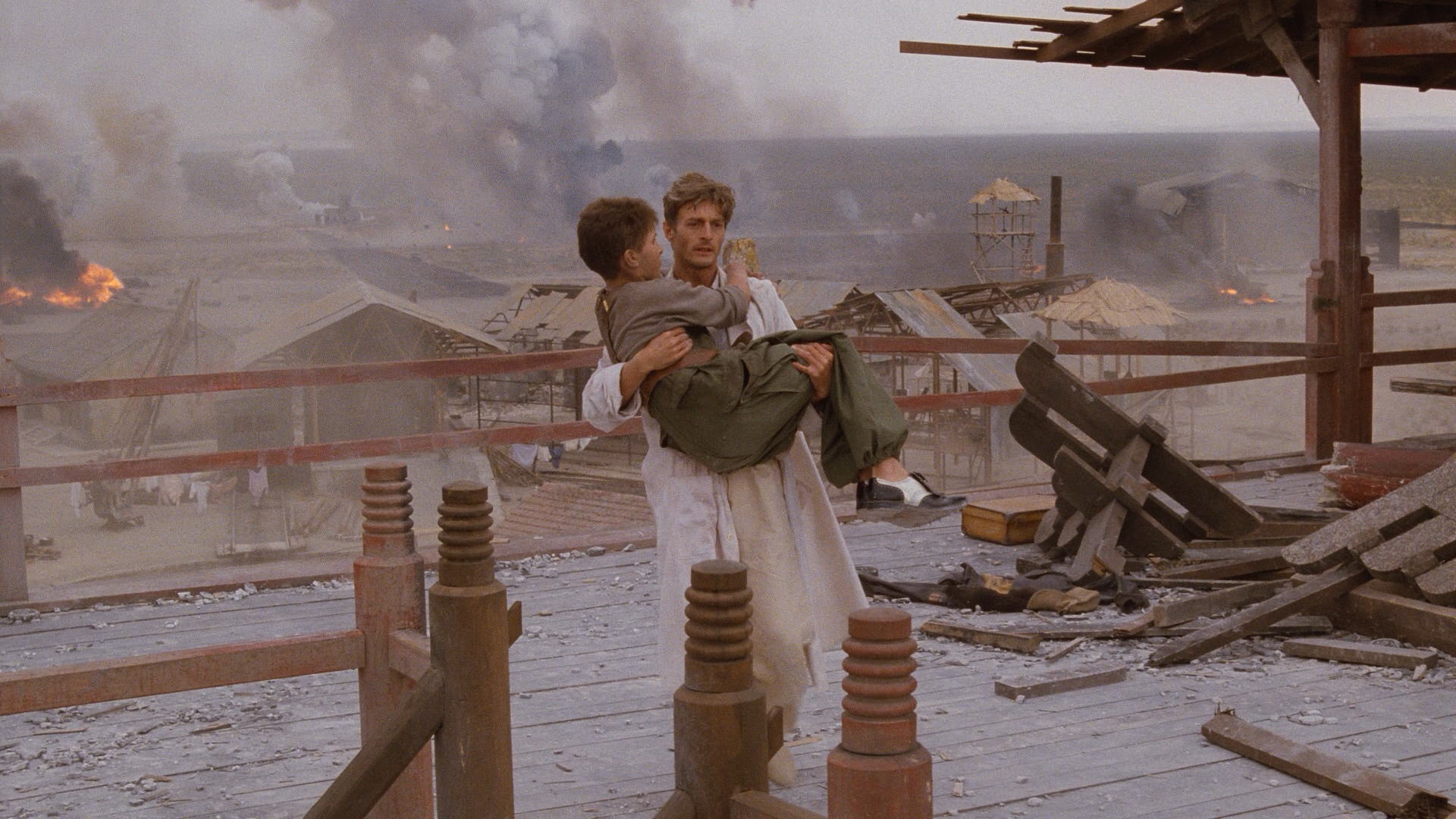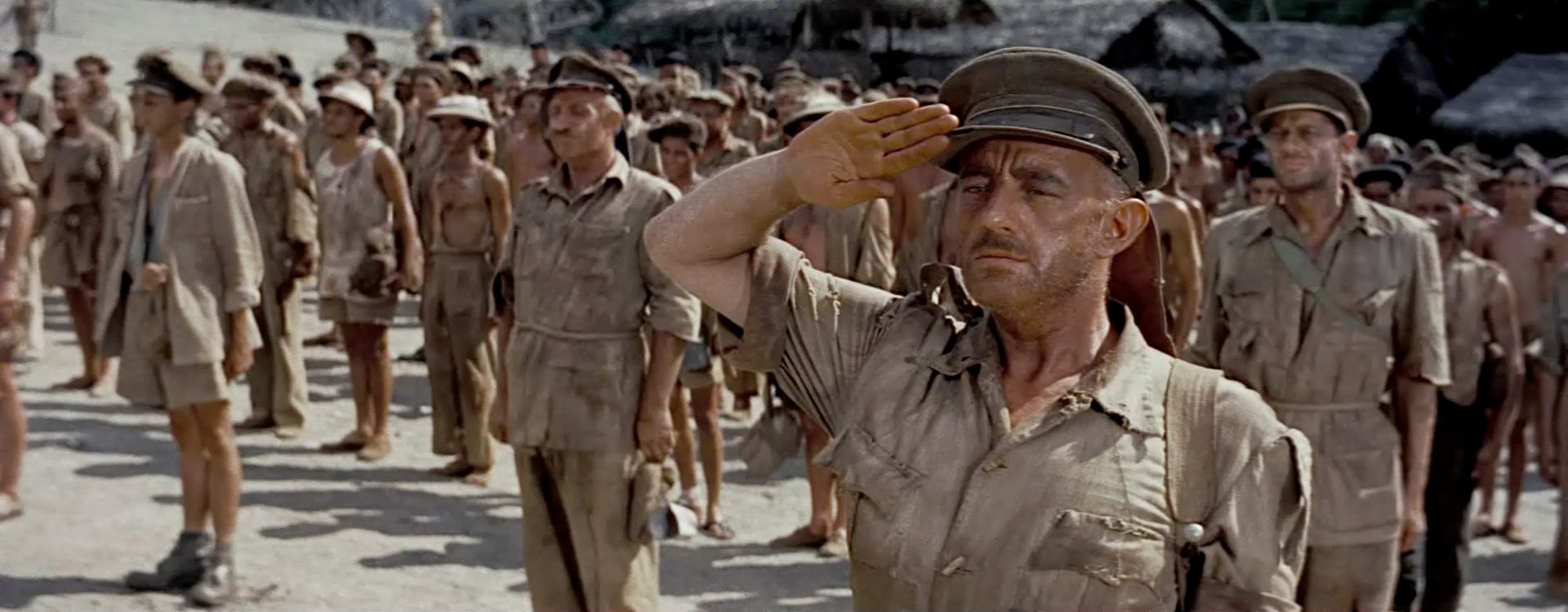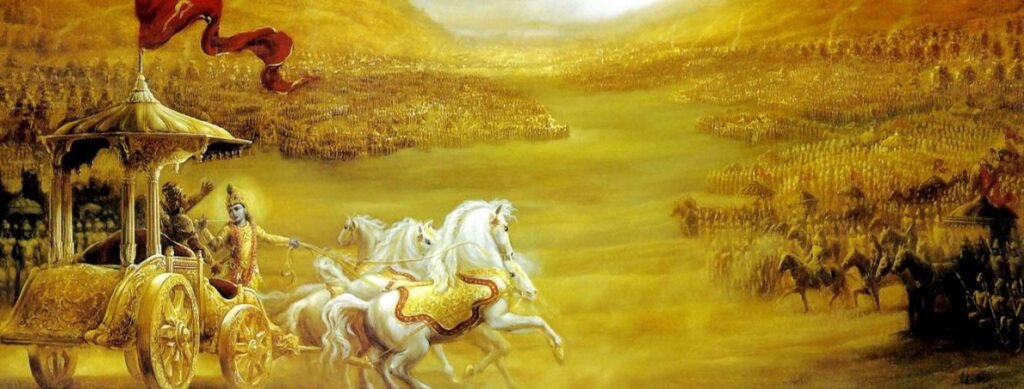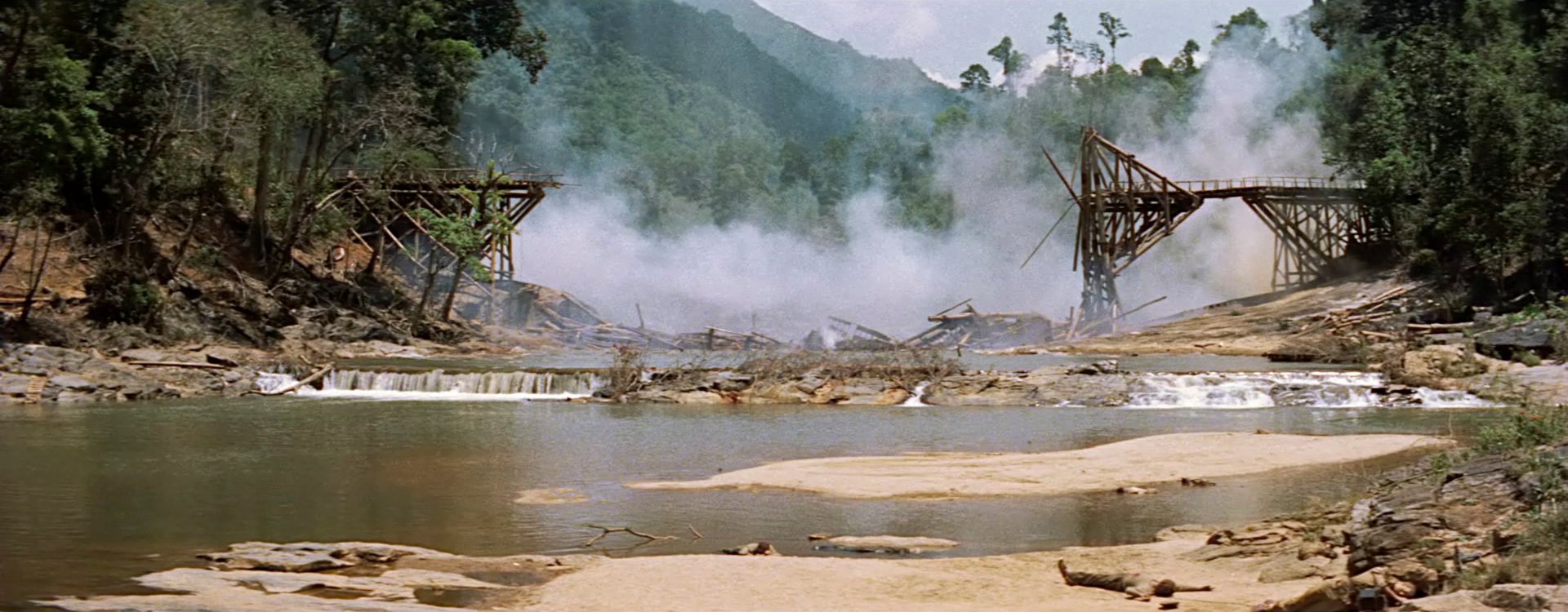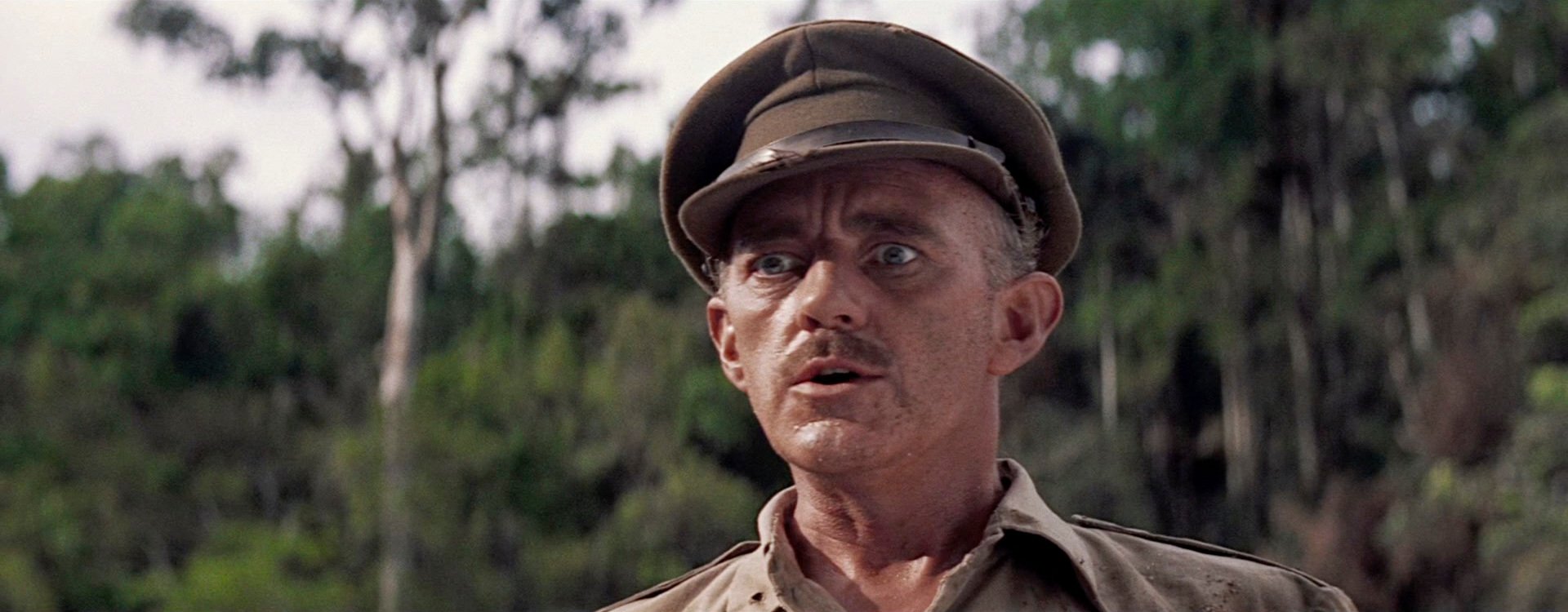Empire of the Sun (1987)
QFS No. 177 - This year marks the 50th anniversary of Jaws (1975), the film that made Steven Spielberg a household name. So revisiting a Spielberg film feels like an appropriate thing to do as we approach the summer. You can make the case, as many have, that Spielberg invented the “summer movie” with Jaws. Empire of the Sun, however, is not a summer movie. I remember when it was released when I was a kid and the reaction to the film was lukewarm. “Lukewarm” or course, is a relative thing, given the stratospheric heights and expectations of a Spielberg film of the time.
QFS No. 177 - The invitation for May 28, 2025
This weekend celebrates Memorial Day, so I felt like it’s a good time to watch a war film. And boy, it's a tall order to pare down which film from World War II to select. There are ones that depict the true brutality of combat that the Quarantine Film Society Select Committee on Excellence (QFSSCoE) was tempted to select. But instead, I convinced them to opt for one of the very few Steven Spielberg films I haven’t seen for some reason, Empire of the Sun. (One of the others being 1941 (1979) – which I was very much tempted to select for its notoriety and is technically a World War II film as well.) This is our third selection by the master after Indiana Jones and the Last Crusade (1989, QFS No. 50) and The Fabelmans (2022, QFS No. 101). We’d been averaging a Spielberg film every 50 selections or so, which means we’re overdue.
This year marks the 50th anniversary* of Jaws (1975), the film that made Spielberg a household name. So revisiting a Spielberg film feels like an appropriate thing to do as we approach the summer. You can make the case, as many have, that Spielberg invented the “summer movie” with Jaws. Empire of the Sun, however, is not a summer movie. It was released when I was a kid and I recall the reaction to the film was lukewarm. “Lukewarm” or course, is a relative thing, given the stratospheric heights and expectations of a Spielberg film of the time. In the handful of years before Empire of the Sun, Spielberg directed Raiders of the Lost Ark (1981), E.T. the Extra-Terrestrial (1982), Indiana Jones and the Temple of Doom (1984) and (oddly) The Color Purple (1985). That’s pretty astonishing when you think about it, not to mention he produced The Goonies (1985) and Poltergeist (1982) in that span as well.
Empire of the Sun falls into the “serious” film category of Steven Spielberg, one that will become more finely honed by the time he directs Schindler’s List (1993) and continues into Saving Private Ryan (1998), Munich (2005) and the like. Also features a very young pre-Batman Christian Bale, as well as some other faces I’m looking forward to seeing on the screen.
Very much eager to see another movie by the one of the people whom I’ve not yet met who is most responsible for my love of movies. Take some time to watch Empire of the Sun and discuss below!
*What.
Reactions and Analyses:
Jim (Christian Bale) has been separated from his family, survived on his own after the Japanese captured Shanghai at the onset of World War II, only to find himself with two American grifters, Frank (Joe Pantoliano) and Basie (John Malkovich) who don’t appear to have his best interests at heart. They take the British boy in but then soon decide to sell him into slavery or some sort of bondage. He’s a semi-valuable commodity to them.
It’s early in Jim’s adventure chronicled in Empire of the Sun (1987), and Basie is unable to get a good price for the young boy, presumably because he’s too weak but it’s not clear since Basie haggles with the Chinese man in Mandarin or Cantonese. Jim walks away with Basie and Frank and asks, more out of curiosity than anything else, why weren’t you able to sell me?
And here is where we know this is a Steven Spielberg film, especially from the 1980s. The question is delivered in the tone of curious musings of a boy, which is much like the film – a curious, almost nostalgic exploration of war-torn Southeast Asia. Had this been another filmmaker you could imagine Jim would be horrified at the thought of being sold to strangers who don’t speak a language he fully understands, completely separated from his parents, starving and attempting to survive. And then some Americans he’s trusted try to sell him? His response would more likely be closer to, what the hell – you were trying to sell me into slavery?!
This is a counterfactual of course; the fact of the matter is that it’s Spielberg who made Empire of the Sun and in many ways it’s a thrilling adventure, complete with hallmarks of a Spielberg film – the good and the oft criticized, the sanitized and gauzy perspective of the past that characterized his first decade as the world’s best known living filmmaker. Six short years after Empire of the Sun, this same filmmaker will have his eyes opened to the horrors of the Holocaust as he made Schindler’s List (1993), and five years after that he continues on into the grim brutality of war in Saving Private Ryan (1998). Another counterfactual – would the Spielberg of post 1993 have made Empire of the Sun a more brutally honest depiction of war and what a child would be exposed to in a war-torn land?
No one can know for sure (the nature of counterfactuals). Few filmmakers have been dissected or psychoanalyzed as thoroughly as Spielberg has been and much has been made about his portrayal of a child with a father, his own relationship with his father being strained and complicated. He even made a film about that very thing (The Fablemans, 2023, QFS No. 101). E.T. The Extra Terrestrial (1984) of course is one of the prime examples of this strain, of a boy living without a father, his mother beleaguered at home after her divorce.
But it’s here too in Empire of the Sun. The boy is temporarily orphaned by war but manages to find and forge a complex father relationship with Basie. Does Basie care for Jim or is Basie using him? At times they seem like a good match, but Basie routinely betrays Jim. When the Japanese are selecting captured refugees from the civilian assembly center to send to another camp, Basie doesn’t stick up for Jim or claim him as a child, even though they’ve been journeying and surviving together. Basie’s even been helping Jim grift at the assembly center in order to survive, often taking food cups from the deceased. Instead, it’s Jim’s own initiative that lands him on the transport vehicle – he jumps on the truck and shouts to the driver that he knows Shanghai like the back of his hand, having lived only there his entire young life.
Later, when they’re at the internment camp in the waning stages of the war, Basie promises if they attempt an escape, he’ll take Jim with him. The Americans and Allies close in on the prison camp and the Japanese soldiers and guards begin to flee. Basie disappears and leaves a devastated Jim behind. If you were using cinema to psychoanalyze Spielberg (as so many do) – this is very deep, this portrayal of a father betraying the son, disappearing and leaving the boy to fend for himself in a time of urgent need. Simultaneously, Jim’s found another father figure in the camp – the British physician Dr. Rawlins (Nigel Havers), who teaches Jim in a more traditional academic sense than Basie’s world-savvy scrappiness. Dr. Rawlins even carries him like a baby after the American P-51 Mustangs bombard the nearby Japanese base and Jim realizes, though the war is coming to an end and he’ll soon see his parents, he doesn’t remember what they look like. The thought emotionally cripples him.
The Japanese vacate the internment camp and Jim marches with the others through the wilderness back to civilization. Their journey is strange, plagued by the surreal visions caused by starvation and uncertainty. They are free but their fate is almost more dangerous than living in the internment camp where they have built a society. The refugees arrive at a stadium full of the riches taken from the citizens of Shanghai, many of them wealthy British ex-pats like Jim’s family. He even finds a car that looks like his, one of the final images he has with his parents.
But Basie’s story with Jim isn’t over yet. After surviving on his own, Jim comes upon air-dropped relief supplies from the Red Cross and manages to stave off starvation. But those pods, gifts from the heavens, attracts marauders – including the sudden return of Basie, who suggested this is where his life would take him, as a pirate on the Yangtze River. Jim, having connected before with a young Japanese pilot (Takatarô Kataoka) he saw through the fences of the internment camp, has serendipitously reconnected with Jim after what appears to be a failed kamikaze mission. The young men connect and share fruit, but their connection will be short lived. The pilot is shot and killed by one of Basie’s men who thinks he’s protecting Jim from being attacked. So not only has Basie betrayed Jim, attempted to sell him, and used him various times, he’s also responsible for killing a “friend.” An abusive father (figure) for sure.
Jim finally reunites with his true family, his mother (Emily Richard) able to recognize him amongst the other orphaned or displaced children recovered by the Allies. Much of Empire of the Sun, in addition to its adventure through the ravaged war-torn countryside, concerns itself with the failure of adults to protect children. Or children forced to grow up faster than they should have to, being exposed to the horrors of the world – which includes being disappointed in the world created by the adults around them and being let down by those who are supposed to be protecting you.
It’s hard not to use the screen as psychoanalysis, just as it’s usually the case that filmmakers often share their deepest inner pain on screen. It’s perhaps only Spielberg in all the annals of cinema who has managed to do it with such a massive canvas without interference, as he does in Empire of the Sun and beyond.
The Bridge on the River Kwai (1957)
QFS No. 137 - For our four-year anniversary of QFS, we decided to select an epic by the great David Lean. Yes, it took us four years to get to a David Lean film, and for the most part it’s because I’ve seen most of the epic classic ones. Lawrence of Arabia (1962) remains one of my favorite films of all time and we could easily have selected it to commemorate our four years of watching and talking about movies. But instead, I picked what is my second favorite Lean film, The Bridge on the River Kwai.
QFS No. 137 - The invitation for April 24, 2024
Happy Fourth Anniversary!
For our four-year anniversary of the Quarantine Film Society, we decided to select an epic by the great David Lean. Yes, it took us four years to get to a David Lean film, and for the most part it’s because I’ve seen most of the epic classic ones. Lawrence of Arabia (1962) remains one of my favorite films of all time and we could easily have selected it to commemorate our four years of watching and talking about movies.
But instead, I picked what is my second favorite Lean film, The Bridge on the River Kwai. I’ve seen it in the theater once and probably half a dozen times in total. (I have somehow managed to watch Lawrence of Arabia about six times in the theater over the last 20 years in LA, a personal achievement of which I'm quite proud.)
One of the things I love about David Lean and why I love his filmmaking is that he makes the epic personal. He crafts giant films on huge tapestries during times of war or conflict – but they are, at their core, character dramas. Lawrence of Arabia is, among other things, an exploration of a man’s identity, of living in between two realities, all set against the World War I proxy conflicts between Turkey and the Arabian kingdoms. A Passage to India (1984) examines race, imperialistic hierarchy, and tolerance during the British Raj rule of India. Doctor Zhivago (1965) is set during the Russian Civil War and beyond but concerns itself mainly with the love story between the two protagonists.
Set during World War II in Burma, The Bridge on the River Kwai is a fascinating tale of duty, of an almost sacred commitment to a task. The film questions whether that task is moral or not. We will discuss this further when we chat about the film, but I’ve always be interested in what is known in Hindu philosophy as dharma – one’s sacred duty – and The Bridge on the River Kwai manages the best portrayal of the concept I’ve come across in Western cinema through Alec Guiness’ character. Again, here the film is not about the war. But war surrounds the story. The epic is backdrop for the personal.
Speaking of epic, just a brief reflection on pulling off a four-year run of Quarantine Film Society. Sure, “pulling off” wasn’t really all that much doing. Simply (a) repeated unemployment of yours truly, (b) stubbornness, (c) an eagerness to write mini-film essays nearly weekly and (d) have at hand a bunch of maniacs willing to watch a film and get on an online video phone to talk about it.
These four years I’ve watched more movies than perhaps any other four year stretch of my life except perhaps for college. I’ve greatly expanded my working knowledge of the craft of cinema, American film history of the 20th Century, and have gained a greater appreciation of film as an art form – in that it can be interpreted less like a sentence in a book and more like a painting in a gallery.
For all of this, I thank you. I hope to keep this up for as long as I can. Join me to discuss The Bridge on the River Kwai as kick off our next four years of world cinema domination.
Reactions and Analyses:
Who is the antagonist in The Bridge on the River Kwai? For a film that has a lot of traditional action elements, it is not an action film in the classic sense. Or a war film in the classic sense, for that matter.
This question, though, of who is the antagonist or “the bad guy” is an interesting one and was quickly brought up by one member of the group. He argues that it’s actually Colonel Nicholson (Alec Guinness). He’s a maniacal man hellbent on living up to his own moral code, to the point of collaborating with who is his enemy.
This is a fascinating take on the film and several QFS members felt similarly. Nicholson, is governed by a code and cannot waver from it. If anything, his counterpart Colonel Saito (Sessue Hayakawa), who runs a prison work camp, is downright reasonable by comparison. Nicholson nearly sacrifices not only himself but his officers on principle. He nearly completely and totally collaborates with the enemy, very nearly (inadvertently) foiling the covert mission by his own government.
Consequently, several QFS members felt that this makes him a merciless sociopath. Sure, I can see that. But also, I’ve always seen him as totally and completely tied to his duty. As I wrote in the invitation to The Bridge on the River Kwai, for me Nicholson evokes the philosophical concept of dharma – which can be translated to spiritual duty, a duty that’s beyond mere obligation but something that’s deep inside of you that you have no choice but to fulfill. There are characters who appear in Hindu mythology who embody the concept, and at times they are unable to do anything other than their duty. They are, as I’ve heard referenced “bound to their dharma.” Rama from the epic The Ramayana has to obey his elders, his father, even when doing so triggers off a curse that leads to his father’s death. (There’s more to it than that but for simplicity’s sake, I’m boiling it down.)
Also, in the other Hindu epic The Mahabharata, the warrior prince Arjuna is on the eve of battle against his family and is paralyzed by inaction. Krishna, who is Lord Vishnu incarnate on earth, guides Arjuna through this crisis by reminding him that his duty is as a warrior for his people, and a warrior fights. Even when it’s going to be against cousins and uncles who he knows and loves – because he is on the side of righteousness. (Again, this is massively oversimplifying the Bhagavad Gita but go with me here.)
Now, I’ve always felt that Nicholson embodies this concept better than almost any character I’ve seen in a Western film that isn’t inspired by Eastern philosophy directly. And I still feel that way, but I noticed something different this time that should’ve been obvious to me before – this is an antiwar film. Nearly every war film is at its core an antiwar film. But The Bridge on the River Kwai is perhaps even darker. It’s not only addressing the cruelty of war, it criticizes the very necessity of war – and of the British Empire. The bridge is more than a bridge - it’s a symbol of colonialization and empire.
QFS members pointed out the arrogance of Nicholson, claiming their British engineers are superior intellectually to the Japanese ones, their workmanship and organization the model of the world. Some in our group couldn’t really tolerate that, which is totally valid. But this arrogance is entirely David Lean’s point. It’s this arrogance, this expressed superiority – that it’s all nonsense. And, in the end, futile and destructive. Like the British Empire, they’ve gone in with what they believe to be good intentions, but leave behind destruction, ruin, and death in their wake.
Or “Madness,” as the medic Major Clipton (James Donald) says in the last line of the film. And after the destruction, Lean leaves us with a final shot, an aerial pullback, wide, from the sky, with a jaunty British military tune. This is not accidental, and it’s an acerbic, biting final blow against the British. He could’ve chosen somber or desolate music. But the final tune has the flavor of cynical sarcasm to it.
And yet, it’s Nicholson, bound by dharma, who must build the bridge and can only do so the best he can. He can’t even comprehend what others are telling him when they say to not build it so well. There are many telling exchanges in the film, but this one to me stands out as emblematic of what I mean:
Major Clipton: The fact is, what we're doing could be construed as - forgive me, sir - collaboration with the enemy. Perhaps even as treasonable activity.
Colonel Nicholson: Are you alright, Clipton? We're prisoners of war, we haven't the right to refuse work.
Major Clipton: I understand that, sir. But... must we work so well? Must we build them a better bridge than they could have built for themselves?
Colonel Nicholson: If you had to operate on Saito, would you do your job or would you let him die? Would you prefer to see this battalion disintegrate in idleness? Would you have it said that our chaps can't do a proper job? Don't you realize how important it is to show these people that they can't break us, in body or in spirit? Take a good look, Clipton. One day the war will be over, and I hope that the people who use this bridge in years to come will remember how it was built, and who built it. Not a gang of slaves, but soldiers! British soldiers, Clipton, even in captivity.
The incredible build up is all worth it – the long film, the (perhaps) extraneous William Holden (as “Shears”) sequences, the near suicide of Hayakawa – it is all worth it for that moment when Nicholson discovers that it’s his fellow British soldiers who are trying to blow up the bridge. As if awaked from a trans, Nicholson says What have I done? Truly one of the greatest epiphanies ever filmed, both in terms of performance and payoff. Nicholson remembers that the bridge was his duty, but there was a greater one and it was for the British Army.
A final note – I thought I had this film figured out. It has remained in my memory as one of my formative movies. But rewatching it and discussing with the QFS group has introduced even more complexity into the story and the themes. Once again, the mark of a truly great work of art and craft by one of the masters of the medium.
